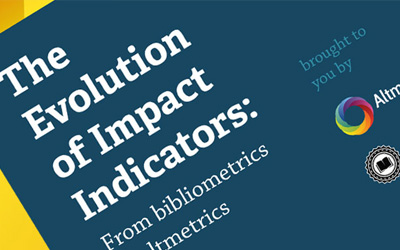
As another spring submission season wraps up and law reviews finish filling their books, many are also in the process of board transitions. That means it’s prime knowledge transfer time before last year’s editors leave their posts.
What are tenured editors’ key takeaways when it comes to organizing article selection workflows and allocating tasks effectively? And what do they consider to be the hallmarks of standout submissions?
Last year, Scholastica launched a blog series where we asked outgoing e-boards to share advice for incoming editors and submitting authors in the above areas. Since interest was high, we decided to keep it going in 2022. In this first of a two-part series, editors respond to the following (you can click the questions below to jump to the answers):
- What’s your top piece of advice to help authors submitting to law reviews improve their chances of getting published?
- What’s your top piece of advice to help incoming law review editors hit the ground running this year?
We hope this blog series provides valuable insights you can apply during the next submission cycle! To check out Part 2 of the series, click here.
What’s your top piece of advice to help authors submitting to law reviews improve their chances of getting published?
To kick off this question, we have an information-packed series of tips from Jesús Rodríguez, former Senior Articles Editor for The Georgetown Law Journal, who wrote an entire Twitter thread on the topic featured below. Thanks to Jesús and all the other editors who took the time to share tips!
Jesús Rodríguez, The Georgetown Law Journal
Today is my last day as senior articles editor of @GeorgetownLJ, so I thought I would share some pointers for authors in #lawtwitter submitting to the spring cycle, which opens tomorrow for us! After poring over thousands of submissions last year, here's what has stood out to me:
— jesús a. rodríguez (@jesusrodriguezb) January 31, 2022
Anonymous law review editor
Aside from the obvious of submitting a well-written and sourced article, a cover letter specifying why you would like to publish with our law review would be helpful. Generic cover letters are not terrible, but it certainly helps to know why you are specifically interested in publishing with our journal.
Robert Bradley, Tulane Maritime Law Journal
Be sure to communicate with the editor of each law review if you have questions to get an idea of what they are looking for in their submissions. I’m not just talking about substance. Make sure you find out exactly how the law review you are submitting to prefers to have its articles formatted.
Anonymous law review editor
Pay attention to what you are applying for — if it’s an international law review, make sure your article deals with an international issue. When you send something that we can’t even consider because it doesn’t meet our requirements, you lose credibility for future articles.
Hammons Hepner, Oklahoma Law Review
Communication is key. Be willing to communicate with editors and try to be prompt. Everyone has competing interests, and the law review publication process may not always be at the top.
Anonymous law review editor
Be clear in what your article is about and show us that you’ve put time, care, and effort into crafting a good thesis. That can sometimes be one of the differentiators between a borderline paper that gets rejected and one that we end up making an offer to.
Anokhy Desai, The Pittsburgh Law Review Online Edition
As times change, law reviews like ours are no longer requiring a resume/CV. We’re keeping our sights set on the relevance of the topic and quality of writing rather than previous publication status or academic record in order to increase the diversity of publications and accessibility of publishing.
Anonymous law review editor
We declined many submissions that were interesting and well written simply because they were too short to be considered Articles. Our Journal generally looks for Articles to be at least 16k words.
Hunter Myers, Alabama Law Review
One thing that we have to account for on our side of the equation is the likelihood of whether the author will accept our offer. And when we have outstanding offers, we are unable to extend other offers that we otherwise would have as to not “overbook.” If you are willing to accept an offer from a law review if extended, and you convey that interest, I definitely think it improves your chances of receiving an offer from that journal.
What’s your top piece of advice to help incoming law review editors hit the ground running this year?
Hammons Hepner, Oklahoma Law Review
Receive a strong transition plan for your previous editor(s)! Make sure that you understand the deadlines and priorities of your law review. If you have the goals in mind, you will know what targets you need to hit.
Anokhy Desai, The Pittsburgh Law Review Online Edition
Figure out your publication cycle preference. Our journal collected articles to publish on a rolling basis and published them through the fall and spring. This allowed us to stay on top of our schedule, reduce anxiety about meeting our publication quota, and provide offers to authors with the most relevant topics. If you’re running or on the board of a law review that publishes on a queue instead of on a rolling basis, consider soliciting and providing offers to articles that have a more general legal applicability and aren’t based on current events or laws that may be amended or stricken down in the next year.
Anonymous law review editor
Planning during the summer is essential. Having a formal publication schedule with specific milestone due dates and role assignments will play a key role in ensuring your team is well organized and publishes each issue on time.
Emma Cunningham, Southern California Review of Law and Social Justice
Get an organization system for reviewing Scholastica submissions early so you don’t miss out on potential articles!
Anonymous law review editor
Start reading submissions in June. Assume that you have all the submissions you will get for the year by September (in reality, a few more will trickle in, but not many). Don’t worry about having more offers out than you can realistically publish in an issue. The decline rate is higher than you would like it to be.
Makenzie Taber, Gonzaga Journal of International Law
Stay on top of submissions and communicate your review timeline to the authors. When an author knows you’ll need some extra time to review their submission, they will be more willing to leave it rather than withdraw because they haven’t heard from you.
Anonymous law review editor
Take the time to read the emails and guidance provided by Scholastica to editors. It is invaluable.
As noted, this is the first in a 2-part blog series on advice from outgoing law review editors (you can read Part 2 here). Stay tuned for the next roundup of tips for e-boards and submitting authors! Thanks again to all of the editors who took the time to share their experiences!








